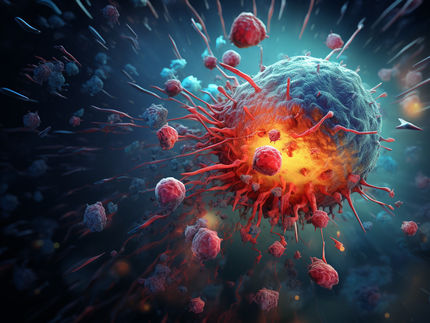Lab-Made Sugars and Nanobodies from Alpacas Against Cancer: Oren Moscovitz Wins Prestigious Hermann Neuhaus Prize
Two start-ups are already working to bring these findings closer to public fruition
Advertisement
Dr. Oren Moscovitz has been awarded €25,000 by the Max Planck Society for his promising research toward treatments and non-invasive diagnostics for cancer, which could potentially reduce overall cancer-related deaths. Moscovitz and his team exploit unique sugar patterns found on cancer cells and develop ultra-small antibodies from alpacas (known as nanobodies) that bind to these sugars. Two start-ups are already working to bring these findings closer to public fruition.
Dr. Oren Moscovitz started as a group leader at the Max Planck Institute of Colloids and Interfaces in 2018, focusing his efforts on cancer. "I firmly believe that the sugar layer that surrounds all our cells holds the solution to drastically reduce the nearly 10 million cancer-related deaths worldwide each year," he explains, "We just need the right keys to unlock it.” Moscovitz is committed to an ambitious goal: expanding the toolbox available for fighting cancer, from early non-invasive diagnosis to tailored therapy. The Max Planck Society recognized the potential impact of his research and the start-ups he launched with the Hermann Neuhaus Prize (€25,000).
Simply put, Moscovitz is a sugar detective engineering solutions that target glycans, the complex sugars that coat the cells of all living organisms. Our bodies constantly scan these sugar layers like built-in barcodes to monitor cell health. Cancer cells are no exception, but their sugar coat also contains altered glycan structures (known as Tumor-Associated Carbohydrate Antigens, or TACAs) that contribute to cancer growth in many ways. Moscovitz employs these abnormal sugar markers for cancer diagnosis and to produce antibodies against them.
"We noticed that the immune system recognizes the changes in sugar patterns already in the early stages of cancer and generates specific antibodies in response,” he elucidates. “We wanted to design an improved version of these antibodies for therapeutic purposes.” Moscovitz and his team turned to automated glycan assembly – a fast and precise technology pioneered at their institute – to replicate abnormal TACAs in the lab. Then, an unlikely ally comes in: alpacas. Their immune system produces nanobodies that are about ten times smaller than normal antibodies. Moscovitz and his team inject synthetic TACAs into alpacas (without causing any harm to the animals) and carefully monitor their response. They then isolate nanobodies from their blood, which become building blocks for future cancer therapies.
The journey from alpacas to humans is winding, of course, with multiple trials and in-depth research. But Moscovitz is confident that targeting cancer’s unique sugar signatures with nanobodies holds great promise. Because of their size, nanobodies can reach targets that ordinary antibodies cannot, such as dense cancer tissues. They could also be combined with specific proteins or drugs for therapies customized to a patient’s glycan profile. Driven by this vision, Moscovitz co-founded Tacalyx GmbH with Prof. Peter Seeberger in 2019 to further develop and commercialize promising anti-TACA antibodies. Another planned spin-off, AGAS Theranostics (currently under the Max Planck start-up incubator Maximize) will explore anti-sugar antibodies in patient blood to detect cancer and other diseases quickly and reliably.
Moscovitz plans to continue his research at the Scojen Institute for Synthetic Biology at the Reichman University in Israel. "The Max Planck Institute of Colloids and Interfaces, especially the Biomolecular Systems Department, has felt like home for a long time, and I am grateful for this. But it is time to return home to Israel. The Hermann Neuhaus prize is a great honor but especially an encouragement to continue my long but fascinating quest," he concludes with a smile.
Other news from the department science
Most read news
More news from our other portals
Something is happening in the life science industry ...
This is what true pioneering spirit looks like: Plenty of innovative start-ups are bringing fresh ideas, lifeblood and entrepreneurial spirit to change tomorrow's world for the better. Immerse yourself in the world of these young companies and take the opportunity to get in touch with the founders.






























































